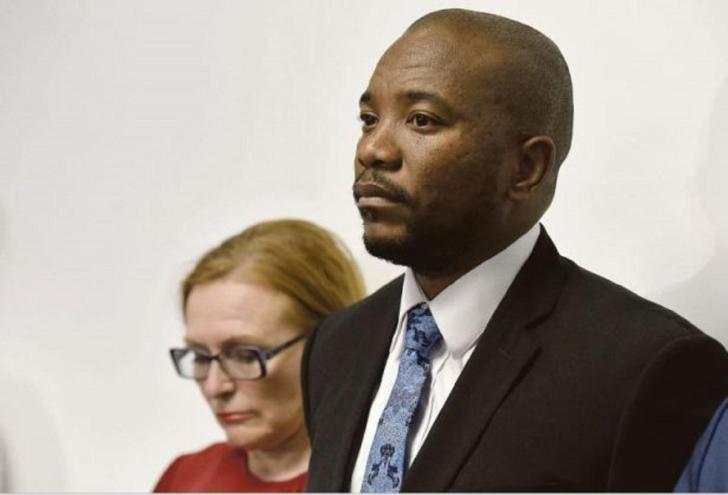News / Local
'Zanu-PF is next,' says Oppenheimer bankrolled Maimane
04 Nov 2024 at 06:56hrs |
0 Views

South African opposition leader Mmusi Maimane who receive millions from the Oppenheimers has issued a stark warning to Zimbabwe's ruling party, Zanu-PF, suggesting that it may soon face a similar fate to the Botswana Democratic Party (BDP), which was recently dethroned after 58 years in power. Maimane, who heads the Build One South Africa (BOSA) party, made these comments in light of the recent political shifts in Southern Africa.
The BDP's long-standing rule came to an abrupt end when President-elect Duma Gideon Boko triumphed over the incumbent Mokgweetsi Masisi in a decisive election. Boko's victory signifies a growing trend of opposition success in the region, highlighted by the ANC's loss of majority control across various councils and in Parliament in South Africa, as well as Hakainde Hichilema's overwhelming defeat of former President Edgar Lungu in Zambia.
Maimane's comments come at a particularly turbulent time for the region, with protests erupting in Mozambique as citizens contest the authenticity of election results that declared the ruling FRELIMO party the winner of recent polls. Amid these upheavals, Zanu-PF continues to cling to power, often criticized by human rights defenders and civic organizations for its controversial methods of governance.
"Chest pains. Zanu-PF is next. We know you wanted your best friend Masisi to win, but Batswana said no," Maimane stated, referring to the close ties between Zanu-PF and the BDP, which openly supported Masisi during the elections.
Despite the electoral defeat, Masisi conceded gracefully, while Zanu-PF's legal secretary, Patrick Chinamasa, had actively campaigned for the BDP in Botswana, hoping to sway the outcome in favor of the incumbent.
Unlike the situation in Mozambique, where the announcement of election results sparked immediate backlash, Zimbabwe's President Emmerson Mnangagwa took a measured approach, refraining from prematurely congratulating the new opposition leader before the official results were confirmed. When Mnangagwa did eventually extend his congratulations, it was through a statement signed by Foreign Affairs Minister Amon Murwira.
As political dynamics in the region continue to shift, Maimane's remarks underscore the potential for significant change in Zimbabwe, where Zanu-PF faces increasing scrutiny and calls for reform from both domestic and international observers.
The BDP's long-standing rule came to an abrupt end when President-elect Duma Gideon Boko triumphed over the incumbent Mokgweetsi Masisi in a decisive election. Boko's victory signifies a growing trend of opposition success in the region, highlighted by the ANC's loss of majority control across various councils and in Parliament in South Africa, as well as Hakainde Hichilema's overwhelming defeat of former President Edgar Lungu in Zambia.
Maimane's comments come at a particularly turbulent time for the region, with protests erupting in Mozambique as citizens contest the authenticity of election results that declared the ruling FRELIMO party the winner of recent polls. Amid these upheavals, Zanu-PF continues to cling to power, often criticized by human rights defenders and civic organizations for its controversial methods of governance.
"Chest pains. Zanu-PF is next. We know you wanted your best friend Masisi to win, but Batswana said no," Maimane stated, referring to the close ties between Zanu-PF and the BDP, which openly supported Masisi during the elections.
Despite the electoral defeat, Masisi conceded gracefully, while Zanu-PF's legal secretary, Patrick Chinamasa, had actively campaigned for the BDP in Botswana, hoping to sway the outcome in favor of the incumbent.
Unlike the situation in Mozambique, where the announcement of election results sparked immediate backlash, Zimbabwe's President Emmerson Mnangagwa took a measured approach, refraining from prematurely congratulating the new opposition leader before the official results were confirmed. When Mnangagwa did eventually extend his congratulations, it was through a statement signed by Foreign Affairs Minister Amon Murwira.
As political dynamics in the region continue to shift, Maimane's remarks underscore the potential for significant change in Zimbabwe, where Zanu-PF faces increasing scrutiny and calls for reform from both domestic and international observers.
Source - newzimbabwe
Join the discussion
Loading comments…































